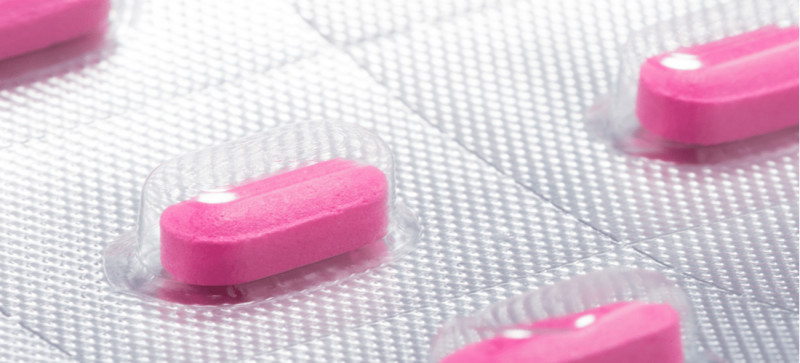Can You Crush Benadryl (Diphenhydramine)?
In our latest question and answer, the pharmacist discusses whether or not Benadryl (diphenhydramine) can be crushed.

Question
I have a hard time swallowing pills and I have allergies. Can I crush a Benadryl pill and put it in my water?

Answered by Dr. Brian Staiger, PharmD
Medical Content Reviewed By HelloPharmacist
Staff
Last updated Jun 25, 2025
Key points
- Benadryl tablets can safely be crushed, and placed in water or on top of certain foods to be taken immediately.
- Alternative dosage forms for Benadryl include chewable tablets and a liquid, which may represent better options than crushing tablets.
Answer
Benadryl (diphenhydramine) is a tablet that can be crushed if necessary. However, it is preferable to take a different dosage form, such as a liquid or chewable tablet, if available to you to to ease administration.
For Benadryl (diphenhydramine), alternative dosage forms include a liquid as well as chewable tablets. Both of these can be dosed in a way to achieve the recommended adult dosage, which may represent a better option versus crushing tablets.
Crushing Tablets
Some medications can be crushed if a patient has difficulty swallowing the dosage form. However, there are several considerations that need to be taken into account when determining if a tablet can be crushed. A pharmacist should be consulted before attempting to crush any tablet. In general, tablets that have the following characteristics should not be crushed:
- Time released tablets
- Film-coated tablets
- Combination products
- Capsules
If a drug is crushed, it is important to recognize that drug product loss is a possibility and you may be at risk of getting less than an optimal dose.
One study looked at drug loss when a drug was crushed using different methods and devices. The study recommended that a small amount of water is to be added to a crushed tablet, which is then consumed. The cup should then be rinsed with water again and consumed to get the remainder of the drug. This method resulted in only 4% of the drug being lost when studied compared to a 24% drug loss when only drinking the solution from the cup once.
Another common administration method is to add a crushed tablet to a semi-solid food, such as pudding or applesauce. This also tends to result in only a minimal dose loss.
Alternatives To Benadryl For Allergies
Lastly, there are newer second-generation antihistamines available in liquid and orally disintegrating tablets (ODT) that can be considered when treating allergies. ODTs are placed on the tongue and allowed to dissolve. No swallowing is necessary. Second-generation antihistamines typically cause little to no drowsiness unlike Benadryl (diphenhydramine) which causes a significant amount of sedation or drowsiness. Second-generation antihistamines include:
- Claritin: 12-hour and 24-hour adult Redi-tabs (ODT) and Children's Chewable tablets and Children's Liquid
- Zyrtec: Adult Zyrtec Dissolve Tabs, Children's Zyrtec Dissolve Tabs, and Children's Zyrtec Allergy Liquid
- Allegra: Children's Allegra Meltable Tablets (ODT) and Children's Allegra Liquid
Benadryl Information
Benadryl (diphenhydramine) is a first-generation antihistamine used in the treatment of allergies, insomnia, and motion sickness. It is available over the counter (OTC) without a prescription in the following formulations:
- Adult tablets
- Adult liquid gel capsule
- Children's liquid
- Children's chewable tablet
Final Words
To reiterate, Benadryl (diphenhydramine) is a tablet that can be crushed, put in water, and consumed immediately if absolutely necessary. It can also be sprinkled on top of food, such as applesauce or pudding.
Some better options include using a different dosage form of Benadryl such as the liquid or chewable tablets or switching to a second-generation antihistamine like Claritin, Zyrtec, or Allegra.
These second-generation antihistamines have orally disintegrating tablets that can be placed on the tongue and do not need to be swallowed. Checking with a pharmacist is always a good idea before splitting or crushing any tablet.
-
 Dr. Brian Staiger, PharmD
Dr. Brian Staiger, PharmD
- 16107 views


